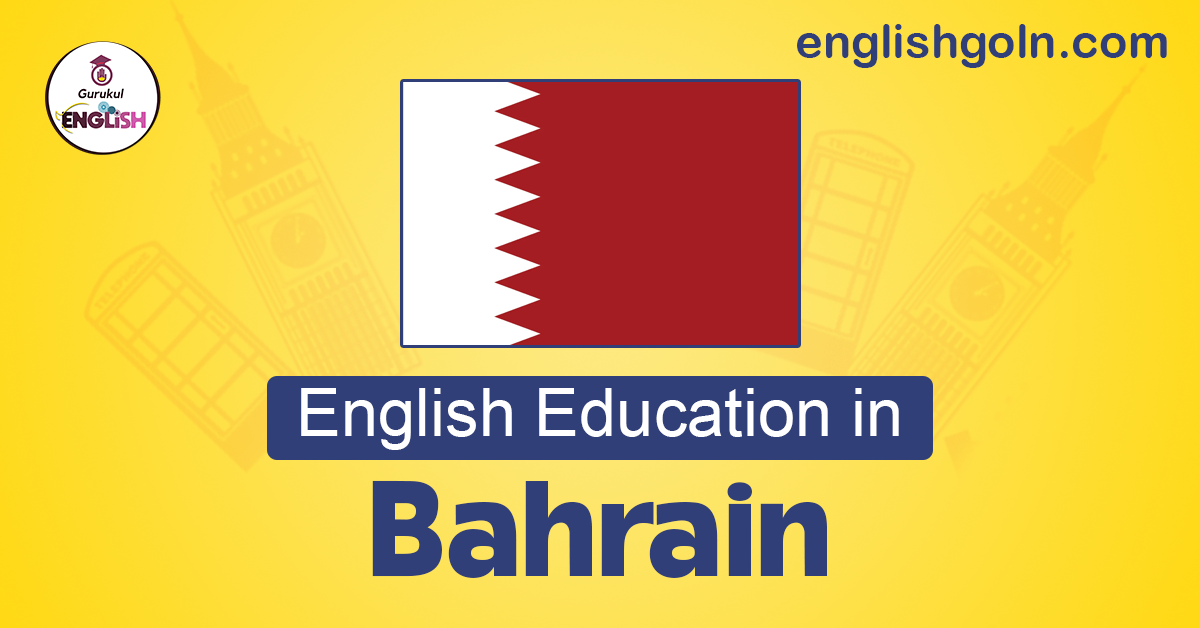Bahrain, a small island nation in the Arabian Gulf, has experienced significant growth and development in recent decades. As the country strives to become a regional hub for business, finance, and tourism, a strong emphasis has been placed on education, particularly English language proficiency. English education in Bahrain plays a critical role in preparing students to compete in the globalized world, fostering cultural exchange, and facilitating communication across borders. This article explores the evolution of English education in Bahrain, its current state, challenges, and the broader impact on the nation’s socio-economic development.
English Education in Bahrain

Historical Background
The history of English education in Bahrain can be traced back to the colonial era when the British influenced the Gulf region. In the early 20th century, British colonial forces established schools and introduced English as a medium of instruction, primarily for administrative and economic purposes. Over time, English became associated with prestige and upward mobility, leading to its prominence in Bahrain’s education system.
Role of English in Modern Bahrain
In contemporary Bahrain, English holds a unique position as the second language and is widely used in various domains, including education, business, media, and international relations. Arabic remains the official language, but English has become the language of globalization, enabling Bahrainis to engage with the world beyond their borders.
English Education in the Bahraini Curriculum
English is introduced as a mandatory subject in Bahraini schools from an early age. English language proficiency is assessed through various standardized tests, and students’ performance in these tests can significantly impact their academic and career prospects.
In addition to English language classes, many schools offer content-based instruction in English. This approach incorporates English into the teaching of other subjects like science, mathematics, and social studies, enabling students to learn subject matter content while enhancing their language skills.
Challenges in English Education
While English education in Bahrain has made significant strides, it faces some challenges:
- Teacher Quality: The quality of English language teachers varies, with some educators lacking the proficiency needed to effectively teach the language. Professional development programs and certification standards can help address this issue.
- Code-Switching: Bahraini students often use code-switching, mixing Arabic and English in their conversations. While code-switching is a natural part of bilingualism, excessive use can hinder the development of both languages.
- Cultural Implications: The dominance of English can raise concerns about the potential erosion of Arabic language and culture. It is crucial to strike a balance between promoting English proficiency and preserving the richness of Bahraini heritage.
- Access to Resources: Not all schools have access to modern resources and technology that can support effective language learning. Ensuring equitable access to resources is essential for promoting English proficiency across all levels of education.
Impact on Bahrain’s Socio-Economic Development
English education plays a significant role in Bahrain’s socio-economic development in various ways:
- Global Competence: English proficiency equips Bahraini students and professionals with the ability to engage confidently in the global economy. It opens doors to international job opportunities and collaboration with multinational companies.
- Tourism and Hospitality: With the tourism industry growing in Bahrain, English proficiency is critical for hospitality workers and tour guides to communicate effectively with international visitors.
- Higher Education: Many Bahraini students pursue higher education abroad, and English proficiency is often a prerequisite for admission to prestigious international universities.
- Diplomacy and International Relations: English fluency is essential for Bahrain’s diplomats and government officials to represent the country effectively on the international stage and engage in diplomatic exchanges.
- Cultural Exchange: English serves as a bridge for cultural exchange, allowing Bahrainis to share their culture with the world and learn from others.
Promoting Bilingualism and Cultural Identity
While English education is crucial for Bahrain’s global integration, it is equally important to preserve and promote the Arabic language and Bahraini cultural identity. Bilingualism should be celebrated as an asset, allowing individuals to navigate diverse cultural contexts while maintaining a strong connection to their roots.
Incorporating Bahraini culture, heritage, and literature into the English curriculum can help students develop a sense of pride in their identity while mastering English language skills. Emphasizing cultural exchange programs and international collaborations can also enhance Bahraini students’ understanding of different cultures while sharing their own.
Conclusion
English education in Bahrain has evolved from its colonial roots to become a cornerstone of the country’s development in the modern globalized world. As Bahrain continues to position itself as a regional hub for business and tourism, English proficiency plays a vital role in preparing its citizens to thrive in a global context. While challenges exist, the pursuit of bilingualism and cultural identity remains essential in promoting a well-rounded education and fostering meaningful connections with the international community. By striking a balance between promoting English proficiency and preserving Arabic language and culture, Bahrain can achieve its vision of becoming a global leader while staying true to its rich heritage.
